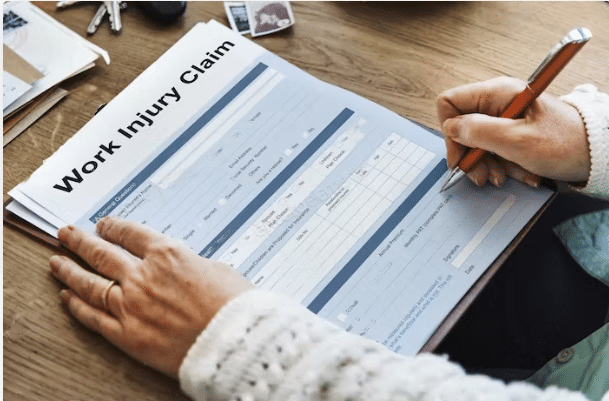What Happens if You Don't Pay a Small Claims Judgement?

The small claims court is an informal court that handles disputes between individuals, companies and government agencies. These disputes include disagreements over money, property, or contracts. There are two types of claims that can be brought before the small claims court- general and specific. General claims deal with any type of dispute, while specific claims focus on specific issues within a dispute.
The small claims process is relatively simple. The defendant (the person or company against whom the claim is made) must serve notice of the claim on the plaintiff (the person claiming damages). The plaintiff then has 21 days to respond, after which the defendant can set a time for a hearing. The parties will resolve the case by agreement if no hearing is scheduled.
How Does Small Claims Court Work?
Small Claims Court is a fast, affordable and informal way to resolve disputes with friends, family, and neighbours. It is known as ‘the people’s court’ because it is open to everyone, regardless of their financial status. You can file a claim up to £5,000. There is no need to hire a lawyer or go to court.
There are two main procedures in Small Claims Court: civil proceedings and summary proceedings. Civil proceedings involve more formal legal allegations and can take longer to resolve than summary proceedings. In summary proceedings, the court only deals with the most basic allegations, making them quicker and cheaper to deal with. If you are involved in a dispute with someone else, consider whether you could resolve it through Small Claims Court first.
To start a small claims case, you must file an affidavit with the court. This affidavit outlines your claim and establishes the evidence you will use to support it. After filing your affidavit, you will receive a case number which you should keep handy.
Once your case is ready to proceed, you will be required to appear in person at the small claims court on the date and time set by the court. You need to attend a hearing where the judge will decide your case based on the evidence you provide. If you win your case, the judge may order the other party to pay you money back, or they may give them an excuse for why they cannot pay you.
What Will Happen if a Defendant Does Not Respond to the Small Claims Court?
If a defendant does not respond to the small claims court, the court may issue an order granting judgment in favour of the plaintiff. This judgment will typically include any money awarded to the plaintiff and costs incurred by the plaintiff in bringing the suit. If a defendant does not respond to an order granting judgment, the court may issue execution against that defendant’s property to satisfy any judgement owed to the plaintiffs.
Can you be forced to pay a judgement?
In the United Kingdom, a small claims court is usually the first and lowest level of court where people can take disputes between themselves to be resolved. This means that generally speaking, people cannot be forced to pay a small claims judgement if they do not want to. However, a few exceptions to this rule will be outlined below.
Suppose you are the defendant in a small claims case and do not attend court or resist the proceedings. In that case, the court can issue an ‘administrative warrant’ ordering you to pay the plaintiff’s costs (including any legal fees that have been incurred). If you ignore an administrative warrant – or if you try to avoid paying it by hiding or abandoning property – then the courts can seize this property and sell it off until you pay up.
What happens if a defendant cannot pay a judgement?
A few things can happen if you win in small claims court and the other party doesn’t pay. First, you may have to take them to court again. If a defendant cannot pay a small claims judgement, the judgment may be entered as a lien on the defendant’s property. Once the lien is recorded, it becomes available for the creditor to seize if outstanding debts are owed. If this happens, the creditor may also be able to take any assets that are connected with the debt. In some cases, such as mortgage arrears, seizure of assets can lead to foreclosure and eviction from the home.
Can I Appeal The Court Order?

If you have been the victim of a small claim in the UK, you may wonder whether you can appeal the court order. In short, yes – but there are a few things to remember first.
First, it is important to understand that an appeal won’t change the original court order – it will only modify or confirm it. Second, there is a time limit for appealing a small claim – typically, you have 30 days after receiving the court order, and a different judge will hear it. Finally, your appeal may be dismissed if you are appealing and don’t have all of the required documents (such as proof of payment).
Conclusion
In conclusion, small claims court is a great way to resolve disputes without needing a lawyer. A small claims court is the best option for you if you have a dispute that doesn’t require legal representation. Some strict rules and procedures must be followed to file a claim, so research the court before filing.
A few things can happen if you win in small claims court and your opponent does not pay the judgment. First, the court may order your opponent to pay you back what you awarded in damages and interests. Second, suppose the amount of the judgment is insufficient to cover the costs of the lawsuit (attorney’s fees and other expenses). The court may order your opponent to pay you additional money in that case. Make sure to have all the necessary documentation to back up your case, and be prepared to fight for what is rightfully yours.
FAQs
What are the limitations of small claims court?
Small claims court is a low-cost, informal way to resolve disputes. Generally, small claims court is available only to individuals or businesses with less than £5,000 in assets. The proceedings are relatively simple and typically take no more than a few months to complete. However, there are certain limitations on the types of claims that can be made and the amount that can be claimed. In addition, small claims court is not available for matters involving land, mortgages, or contracts. Finally, it is important to note that small claims court does not have the same legal consequences as civil court proceedings.
What happens if someone doesn’t respond to a claim?
If someone does not respond to a claim, the proceedings can begin. The claimant must file a Claim Form and provide evidence that they are owed money. If the defendant fails to respond to the Claim Form, the court may grant an order for judgment against them. If the defendant does respond, they may have the opportunity to present their case or offer accommodation. If no settlement is reached, the court will issue a final judgment in either favour of or against the claimant.
How long do you have to pay a small claims Judgement?
In England and Wales, a small claims Judgement is typically awarded for amounts up to £5,000. The court will consider all relevant evidence and decide whether the claimant is owed money. If the claimant is successful in their case, they will generally be required to pay the defendant’s legal costs.
A small claims court is a court that deals with civil disputes that fall below the level of a criminal trial. These can include disputes between private individuals, businesses and government agencies. The Small Claims Court process is relatively quick and simple, with judgments usually delivered within six months. This means that you have three months to pay the judgment if you are the plaintiff (the person who filed the suit) or four months if you are the defendant. If you do not comply with the judgment, legal proceedings can be taken against you.






